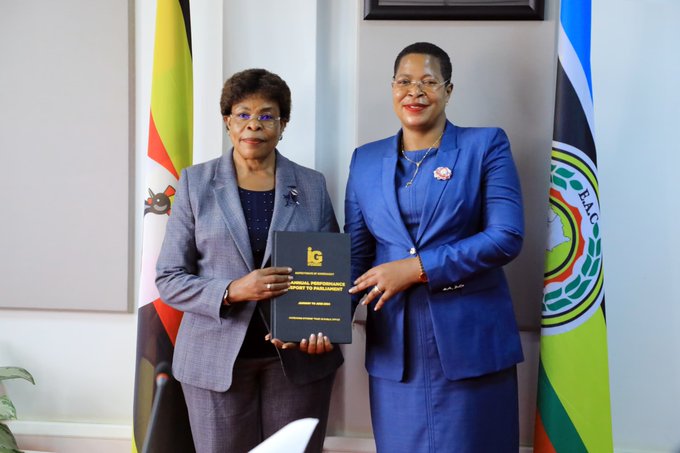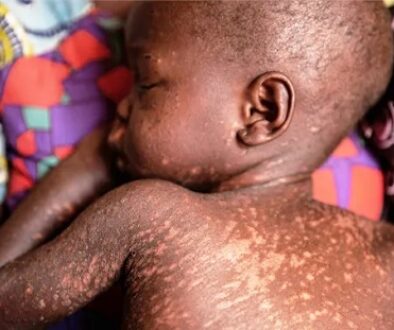IGG investigates 2,218 corruption cases

CAPTION: Inspector General of Government Beti Kamya (L) hands Speaker of Parliament Anita Among (R) corruption report recently. (File photo).
By Our reporter
KAMPALA – The Inspectorate of Government has in the past year investigated and concluded 2,218 corruption cases.
She noted that the actions included interdictions, job dismissals, and disciplinary measures. Kamya added that the IG’s work also led to the recovery of 7 billion in stolen public funds, with more still under recovery, and in addition, 53 spot checks were conducted and over 1,200 government projects inspected.
Kamya also revealed that 16 public officers were recommended for prosecution at the Anti-Corruption Division and 37 others at the Leadership Code Tribunal. “The IG’s conviction rate stands at 94.7% at the leadership court level,” she noted.
Kamya also said that money lost to corruption can be distributed to parishes under the Parish Development Model (PDM) initiative. “If Uganda could save the 10 trillion shillings from corruption and divide it among the 10,000 parishes of Uganda. During this PMD season, each parish would receive 1 billion shillings a year,” Kamya said.
She said that the money could be used to improve healthcare, roads, schools, and incomes for rural communities.
Under the PDM, each parish is expected to access sh100 million or more annually through the model to support agriculture, financial inclusion, infrastructure, social services, and mindset change. The funds are meant to be managed transparently by Parish Development Committees to directly benefit households, particularly the 3.5 million Ugandans stuck in subsistence farming.
However, as Kamya noted, the full promise of PDM is being severely undermined by corruption at various levels of government, because instead of 100 million, each parish could be receiving 1 billion every year.
According to Kamya, Uganda accounts for nearly $2.7 billion of the estimated $140 billion lost to corruption annually across Africa, making it one of the country’s biggest threats to development.
Kamya pointed out that a toxic public mindset remains one of the biggest barriers to fighting corruption. “Ugandans often celebrate sudden wealth without questioning its source. They give names like ‘Boss’ and ‘Kapo’ to people who become rich overnight, even when they’re public officials,” she said. “When these same officials are arrested, the community fills the court in support. That mindset glorifies corruption.”
She stressed that mindset change is critical to shifting the narrative and uniting citizens around integrity and accountability. “Instead of asking for a share of the loot, Ugandans should be asking, ‘Where did you get all this money from?’” she added.
The IGG emphasized that fighting corruption is no longer just the government’s responsibility; it must become a people’s war. She added that the IG’s office is training local citizens as anti-corruption ambassadors, equipping them with tools to identify, document, and report corruption in their communities.
She called upon communities to expose unexplained wealth, including high-rise buildings in city suburbs allegedly owned by public officials. “It’s difficult for us in Kampala to know who owns what property in remote areas. But you, the local people, know. You see their lifestyles. Help us bring them to justice,” she urged.
She cautioned that corruption will continue to fight back viciously, but if citizens stand united and firm, the war can be won. “Corruption is robbing every parish of UGX 1 billion each year. That’s not just a statistic; it’s a stolen opportunity for clean water, decent schools, and working hospitals. Let’s reclaim what belongs to us.”


